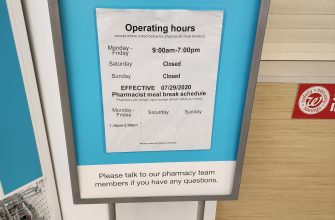Consider consulting your doctor before starting a daily regimen of 100mg Viagra. This dosage isn’t standard and requires professional medical oversight. Your physician will assess your health and determine the appropriate dosage for your specific needs, considering potential side effects and interactions with other medications.
Daily use of Viagra, at any dosage, necessitates regular monitoring of blood pressure and cardiovascular health. Open communication with your doctor is paramount. Regular check-ups will allow for prompt adjustments to your treatment plan should any issues arise. Expect to discuss your lifestyle factors, such as diet and exercise, as these can influence treatment efficacy.
Remember: Self-medicating with Viagra can be risky. A doctor’s assessment provides personalized guidance, ensuring you receive the best possible care and minimizing potential complications. They can guide you toward safer alternatives if 100mg Viagra proves unsuitable.
Note: This information does not constitute medical advice. Always consult a healthcare professional for personalized guidance on medication use.
Is Daily Viagra (100mg) Right for You? A Comprehensive Guide
No, a 100mg daily dose isn’t a standard recommendation. Start with a conversation with your doctor. They’ll assess your health history and current medications to determine the appropriate dosage, which might be significantly lower. This individualized approach ensures safety and efficacy.
Daily Viagra, typically prescribed at a lower dose than needed for single-use treatment, addresses erectile dysfunction differently. It maintains a consistent level of the active ingredient, sildenafil, in your system. This approach is beneficial for men experiencing consistent erectile difficulties, promoting spontaneous sexual activity.
However, daily use requires a careful evaluation of potential side effects. Common ones include headaches, flushing, nasal congestion, and indigestion. Your doctor can discuss these risks and potential mitigating strategies with you.
Consider your overall health. Certain pre-existing conditions, like heart problems or liver disease, might necessitate adjustments or contraindicate daily Viagra use. Openly discuss all your health concerns with your physician.
Cost is another factor. While convenient, daily use translates to higher long-term medication expenses. Weigh the cost against the benefits discussed with your doctor to make an informed decision.
Regular checkups are vital. Schedule follow-up appointments to monitor your progress and address any concerns or adjustments needed. Your doctor will assess the effectiveness of the treatment and make necessary modifications.
Remember: This information serves as guidance, not medical advice. Consult your physician for personalized recommendations tailored to your specific needs and health status before initiating any treatment for erectile dysfunction.
Understanding Viagra’s Mechanism and 100mg Daily Effects
Viagra, or sildenafil, works by inhibiting the enzyme phosphodiesterase-5 (PDE5). This increases blood flow to the penis, facilitating erections. A 100mg daily dose is significantly higher than the typical prescribed dose for erectile dysfunction, usually ranging from 25-50mg as needed.
Taking 100mg daily might lead to increased efficacy for some, but it also raises the risk of side effects. Common side effects include headaches, facial flushing, nasal congestion, and visual disturbances. Higher doses increase the likelihood and severity of these effects.
Long-term use of high doses may have unforeseen consequences. Always consult your physician before considering daily use, particularly at this dosage. They can assess your health status, evaluate potential risks, and discuss alternative treatment options.
Your doctor can monitor your blood pressure and liver function regularly, crucial for long-term high-dose Viagra use. This is necessary to mitigate potential complications.
Remember, self-medicating can be dangerous. A personalized approach is key to successful treatment and minimizing potential adverse effects. Discuss your treatment goals and concerns openly with your doctor to make an informed decision.







